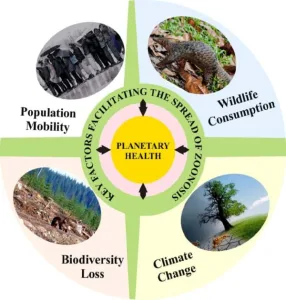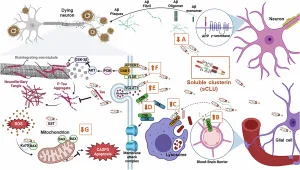Herpes Simplex Virus 1 (HSV-1) and Increased Alzheimer’s Risk: A New Study
A recent extensive study indicates a potential link between symptomatic infections of Herpes Simplex Virus 1 (HSV-1) and an elevated risk of developing Alzheimer’s disease. HSV-1, commonly known for causing cold sores, may have a more significant impact on long-term neurological health than previously understood.
Understanding the Study’s Findings
The research suggests that individuals experiencing symptomatic HSV-1 infections might face a considerably higher risk of Alzheimer’s disease compared to those without such infections. While the study highlights a correlation, further investigation is necessary to fully understand the underlying mechanisms.
Key Points from the Research:
- Symptomatic HSV-1 infections could increase the likelihood of developing Alzheimer’s.
- The study emphasizes a correlation, not necessarily causation.
- More research is needed to explore the connection between HSV-1 and Alzheimer’s.
What This Means for You
It’s important to note that having HSV-1 doesn’t guarantee the development of Alzheimer’s. However, this study highlights the importance of managing HSV-1 infections and staying informed about potential health risks. Consult with healthcare professionals for personalized advice and management strategies.
Further Research and Implications
The scientific community is actively pursuing a deeper understanding of the relationship between viral infections like HSV-1 and neurodegenerative diseases such as Alzheimer’s. Future studies may focus on:
- Identifying specific mechanisms through which HSV-1 might influence Alzheimer’s development.
- Exploring potential preventative measures or treatments to mitigate the risk.
- Conducting larger-scale studies to validate the observed correlation.
Final Overview
The study linking symptomatic HSV-1 infections to a higher risk of Alzheimer’s disease opens new avenues for research and awareness. While more investigation is crucial, it underscores the importance of proactive health management and informed discussions with healthcare providers. Stay tuned for further updates as the scientific community continues to explore this critical connection.




+ There are no comments
Add yours